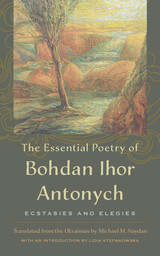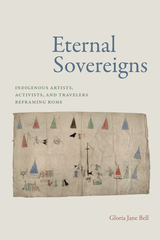7 books about Fiji
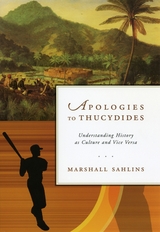
Apologies to Thucydides
Understanding History as Culture and Vice Versa
Marshall Sahlins
University of Chicago Press, 2004
Thucydides' classic work on the history of the Peloponnesian War is the root of Western conceptions of history—including the idea that Western history is the foundation of everyone else's. Here, Marshall Sahlins takes on Thucydides and the conceptions of history he wrought with a groundbreaking new book that shows what a difference an anthropological concept of culture can make to the writing of history.
Sahlins begins by confronting Thucydides' account of the Peloponnesian War with an analogous "Polynesian War," the fight for the domination of the Fiji Islands (1843-55) between a great sea power (like Athens) and a great land power (like Sparta). Sahlins draws parallels between the conflicts with an eye to their respective systems of power and sovereignty as well as to Thucydides' alternation between individual (Pericles, Themistocles) and collective (the Athenians, the Spartans) actors in the making of history. Characteristic of most histories ever written, this alternation between the agency of "Great Men" and collective entities leads Sahlins to a series of incisive analyses ranging in subject matter from Bobby Thomson's "shot heard round the world" for the 1951 Giants to the history-making of Napoleon and certain divine kings to the brouhaha over Elián Gonzalez. Finally, again departing from Thucydides, Sahlins considers the relationship between cultural order and historical contingency through the recounting of a certain royal assassination that changed the course of Fijian history, a story of fratricide and war worthy of Shakespeare.
In this most convincing presentation yet of his influential theory of culture, Sahlins experiments with techniques for mixing rich narrative with cultural explication in the hope of doing justice at once to the actions of persons and the customs of people. And he demonstrates the necessity of taking culture into account in the creation of history—with apologies to Thucydides, who too often did not.
Sahlins begins by confronting Thucydides' account of the Peloponnesian War with an analogous "Polynesian War," the fight for the domination of the Fiji Islands (1843-55) between a great sea power (like Athens) and a great land power (like Sparta). Sahlins draws parallels between the conflicts with an eye to their respective systems of power and sovereignty as well as to Thucydides' alternation between individual (Pericles, Themistocles) and collective (the Athenians, the Spartans) actors in the making of history. Characteristic of most histories ever written, this alternation between the agency of "Great Men" and collective entities leads Sahlins to a series of incisive analyses ranging in subject matter from Bobby Thomson's "shot heard round the world" for the 1951 Giants to the history-making of Napoleon and certain divine kings to the brouhaha over Elián Gonzalez. Finally, again departing from Thucydides, Sahlins considers the relationship between cultural order and historical contingency through the recounting of a certain royal assassination that changed the course of Fijian history, a story of fratricide and war worthy of Shakespeare.
In this most convincing presentation yet of his influential theory of culture, Sahlins experiments with techniques for mixing rich narrative with cultural explication in the hope of doing justice at once to the actions of persons and the customs of people. And he demonstrates the necessity of taking culture into account in the creation of history—with apologies to Thucydides, who too often did not.
[more]
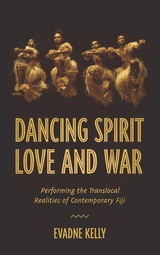
Dancing Spirit, Love, and War
Performing the Translocal Realities of Contemporary Fiji
Evadne Kelly
University of Wisconsin Press, 2022
Meke, a traditional rhythmic dance accompanied by singing, signifies an important piece of identity for Fijians. Despite its complicated history of colonialism, racism, censorship, and religious conflict, meke remained a vital part of artistic expression and culture. Evadne Kelly performs close readings of the dance in relation to an evolving landscape, following the postcolonial reclamation that provided dancers with political agency and a strong sense of community that connected and fractured Fijians worldwide.
Through extensive archival and ethnographic fieldwork in both Fiji and Canada, Kelly offers key insights into an underrepresented dance form, region, and culture. Her perceptive analysis of meke will be of interest in dance studies, postcolonial and Indigenous studies, anthropology and performance ethnography, and Pacific Island studies.
Through extensive archival and ethnographic fieldwork in both Fiji and Canada, Kelly offers key insights into an underrepresented dance form, region, and culture. Her perceptive analysis of meke will be of interest in dance studies, postcolonial and Indigenous studies, anthropology and performance ethnography, and Pacific Island studies.
[more]

A Grammar of Boumaa Fijian
R. M. W. Dixon
University of Chicago Press, 1988
The people who live in the Boumaa region of the Fijian island of Taveuni speak a dialect of Fijian that is mutually intelligible with Standard Fijian, the two differing as much perhaps as do the American and British varieties of English. During 1985, R. M. W. Dixon—one of the most insightful of linguists engaged in descriptive studies today—lived in the village of Waitabu and studied the language spoken there. He found in Boumaa Fijian a wealth of striking features unknown in commonly studied languages and on the basis of his fieldwork prepared this grammar.
Fijian is an agglutinating language, one in which words are formed by the profligate combining of morphemes. There are no case inflections, and tense and aspect as shown by independent clitics or words within a predicate complex. Most verbs come in both transitive and intransitive forms, and nouns can be build up regularly from verbal parts and verbs from nouns. The language is also marked by a highly developed pronoun system and by a vocabulary rich in areas of social significance.
In the opening chapters, Dixon describes the Islands' political, social, and linguistic organization, outlines the main points of Fijian phonology, and presents an overview of the grammar. In succeeding chapters, he examines a number of grammatical topics in greater detail, including clause and phrase structure, verbal syntax, deictics, and anaphora. The volume also includes a full vocabulary of all forms treated in discussion and three of the fifteen texts recorded from monolingual village elders on which the grammar is based.
Fijian is an agglutinating language, one in which words are formed by the profligate combining of morphemes. There are no case inflections, and tense and aspect as shown by independent clitics or words within a predicate complex. Most verbs come in both transitive and intransitive forms, and nouns can be build up regularly from verbal parts and verbs from nouns. The language is also marked by a highly developed pronoun system and by a vocabulary rich in areas of social significance.
In the opening chapters, Dixon describes the Islands' political, social, and linguistic organization, outlines the main points of Fijian phonology, and presents an overview of the grammar. In succeeding chapters, he examines a number of grammatical topics in greater detail, including clause and phrase structure, verbal syntax, deictics, and anaphora. The volume also includes a full vocabulary of all forms treated in discussion and three of the fifteen texts recorded from monolingual village elders on which the grammar is based.
[more]
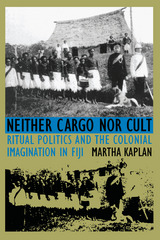
Neither Cargo nor Cult
Ritual Politics and the Colonial Imagination in Fiji
Martha Kaplan
Duke University Press, 1995
In the 1880s an oracle priest, Navosavakadua, mobilized Fijians of the hinterlands against the encroachment of both Fijian chiefs and British colonizers. British officials called the movement the Tuka cult, imagining it as a contagious superstition that had to be stopped. Navosavakadua and many of his followers, deemed "dangerous and disaffected natives," were exiled. Scholars have since made Tuka the standard example of the Pacific cargo cult, describing it as a millenarian movement in which dispossessed islanders sought Western goods by magical means. In this study of colonial and postcolonial Fiji, Martha Kaplan examines the effects of narratives made real and traces a complex history that began neither as a search for cargo, nor as a cult.
Engaging Fijian oral history and texts as well as colonial records, Kaplan resituates Tuka in the flow of indigenous Fijian history-making and rereads the archives for an ethnography of British colonizing power. Proposing neither unchanging indigenous culture nor the inevitable hegemony of colonial power, she describes the dialogic relationship between plural, contesting, and changing articulations of both Fijian and colonial culture.
A remarkable enthnographic account of power and meaning, Neither Cargo nor Cult addresses compelling questions within anthropological theory. It will attract a wide audience among those interested in colonial and postcolonial societies, ritual and religious movements, hegemony and resistance, and the Pacific Islands.
Engaging Fijian oral history and texts as well as colonial records, Kaplan resituates Tuka in the flow of indigenous Fijian history-making and rereads the archives for an ethnography of British colonizing power. Proposing neither unchanging indigenous culture nor the inevitable hegemony of colonial power, she describes the dialogic relationship between plural, contesting, and changing articulations of both Fijian and colonial culture.
A remarkable enthnographic account of power and meaning, Neither Cargo nor Cult addresses compelling questions within anthropological theory. It will attract a wide audience among those interested in colonial and postcolonial societies, ritual and religious movements, hegemony and resistance, and the Pacific Islands.
[more]

The Network Inside Out
Annelise Riles
University of Michigan Press, 2001
"Networks" and other artifacts of institutional life--documents, funding proposals, newsletters, organizational charts--are such ubiquitous aspects of the "information age" that they go unnoticed to most observers. In this work, Annelise Riles takes a sophisticated theoretical approach to examine the aesthetics of these artifacts and practices, to learn what their very forms and formats can tell us about knowledge and legality in today's world.
The immediate subject of Riles's ethnographic work was a group of Fijian bureaucrats and activists preparing for and participating in the United Nations Fourth World Conference on Women. Participants in this meeting and the activities surrounding it understood themselves to be "focal points" in national, regional, and global "networks."
Starting from the premise that anthropologists are "inside" the Network, that is, that they are producers, consumers, and aesthetes, not simply observers, of the artifacts of late modern institutional life, Riles enacts a new ethnographic method for turning the network "inside out." The resulting experiment in the theory and ethnography of transnational institutional practices makes an important contribution to the anthropology of knowledge.
With its focus on developing a method for studying transnational phenomena, The Network Inside Out will appeal not only to anthropologists, but also to legal scholars and political scientists.
Annelise Riles is Assistant Professor, Northwestern University School of Law, Research Fellow, American Bar Foundation.
The immediate subject of Riles's ethnographic work was a group of Fijian bureaucrats and activists preparing for and participating in the United Nations Fourth World Conference on Women. Participants in this meeting and the activities surrounding it understood themselves to be "focal points" in national, regional, and global "networks."
Starting from the premise that anthropologists are "inside" the Network, that is, that they are producers, consumers, and aesthetes, not simply observers, of the artifacts of late modern institutional life, Riles enacts a new ethnographic method for turning the network "inside out." The resulting experiment in the theory and ethnography of transnational institutional practices makes an important contribution to the anthropology of knowledge.
With its focus on developing a method for studying transnational phenomena, The Network Inside Out will appeal not only to anthropologists, but also to legal scholars and political scientists.
Annelise Riles is Assistant Professor, Northwestern University School of Law, Research Fellow, American Bar Foundation.
[more]
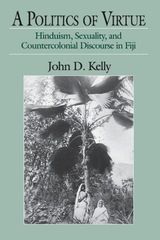
A Politics of Virtue
Hinduism, Sexuality, and Countercolonial Discourse in Fiji
John D. Kelly
University of Chicago Press, 1991
Kelly opens new questions about dialogue, colonial power, and
changing conditions of political possibility by examining the
connection between politics and sexual morality in the British
colony of Fiji from 1929 to 1932.
changing conditions of political possibility by examining the
connection between politics and sexual morality in the British
colony of Fiji from 1929 to 1932.
[more]
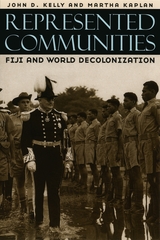
Represented Communities
Fiji and World Decolonization
John D. Kelly and Martha Kaplan
University of Chicago Press, 2001
In 1983 Benedict Anderson's Imagined Communities revolutionized the anthropology of nationalism. Anderson argued that "print capitalism" fostered nations as imagined communities in a modular form that became the culture of modernity.
Now, in Represented Communities, John D. Kelly and Martha Kaplan offer an extensive and devastating critique of Anderson's depictions of colonial history, his comparative method, and his political anthropology. The authors build a forceful argument around events in Fiji from World War II to the 2000 coups, showing how focus on "imagined communities" underestimates colonial history and obscures the struggle over legal rights and political representation in postcolonial nation-states. They show that the "self-determining" nation-state actually emerged with the postwar construction of the United Nations, fundamentally changing the politics of representation.
Sophisticated and impassioned, this book will further anthropology's contribution to the understanding of contemporary nationalisms.
Now, in Represented Communities, John D. Kelly and Martha Kaplan offer an extensive and devastating critique of Anderson's depictions of colonial history, his comparative method, and his political anthropology. The authors build a forceful argument around events in Fiji from World War II to the 2000 coups, showing how focus on "imagined communities" underestimates colonial history and obscures the struggle over legal rights and political representation in postcolonial nation-states. They show that the "self-determining" nation-state actually emerged with the postwar construction of the United Nations, fundamentally changing the politics of representation.
Sophisticated and impassioned, this book will further anthropology's contribution to the understanding of contemporary nationalisms.
[more]
READERS
Browse our collection.
PUBLISHERS
See BiblioVault's publisher services.
STUDENT SERVICES
Files for college accessibility offices.
UChicago Accessibility Resources
home | accessibility | search | about | contact us
BiblioVault ® 2001 - 2024
The University of Chicago Press



